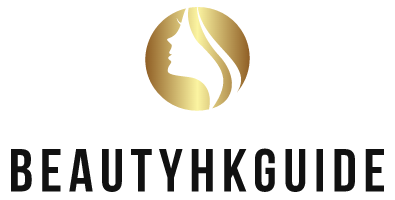11 Payment Monikers That Independent Cross-Border E-Commerce Merchants Need To Know

For independent cross-border e-commerce merchants, making sure that your pci dss certificationpayment options are set up properly can be a tough task. In this article, learn more about 11 payment monikers that you should know and how they can help you manage your business!
What is a Payment Method
When it comes to payment, there are a variety of terms that merchants need to be aware of. Payment methods can vary depending on the country or region where the merchant is located.
Some common payment methods include:
Credit Cards,PayPal,Direct Bank Transfers,Bitcoin,Alipay
Merchants need to be aware of the payment method that is best suited for their business. Choosing the wrong payment method could lead to lost sales and decreased profits. By understanding the different payment methods, merchants can maximize their cross-border ecommerce profits.
The Importance of Payment Monikers
Merchants who sell products and services internationally have come to rely on a variety of payment methods. However, these merchants often find it difficult to accept payments in other currencies. As a result, they need to use payment monikers that are specific to their industry.
One of the most important payment monikers for cross-border e-commerce merchants is PayPal. PayPal is a popular payment service that is used by many online retailers. Merchants can use PayPal to accept payments in more than 200 different currencies.
Another important payment moniker for cross-border e-commerce merchants is MasterCard. MasterCard is one of the world's largest card networks. It allows merchants to accept payments in more than 200 different currencies.
Merchants who sell products and services internationally also need to use payment gateways. These gateways allow merchants to process payments from customers in different countries. Some of the most popular payment gateways for cross-border e-commerce are Stripe and Square Cash.
Why Bitcoin Matters for E-Commerce
Bitcoin is a digital currency that has gained a lot of popularity in recent years. It is sometimes called the “digital gold” because it can be used to purchase goods and services online.
One reason why Bitcoin is so important for e-commerce is that it allows merchants to take payments without worrying about taxes or charges. This is especially important for merchants who sell products and services across borders.
Bitcoin also has an advantage over other payment methods because it is not subject to government control. This means that it can be used to pay for goods and services in countries where those transactions are prohibited or difficult to conduct.
Overall, Bitcoin is a powerful tool that independent cross-border e-commerce merchants need to know about. It allows them to take payments without worrying about fees or taxes, and it has the potential to reach a much larger audience than traditional payment methods.
Conclusion
In order to compete and grow in the global e-commerce market, merchants need to be familiar with payment monikers that are specific to the cross-border market. Payment monikers allow merchants to easily process payments in a foreign currency and understand how their customers are spending their money. By using these payment monikers, merchants can streamline their cross-border transactions and improve customer satisfaction.
Related Hot Topic
An ADR certificate is what?
Drivers of vehicles with tanks and specific tank components, as well as some drivers of vehicles transporting dangerous products in packages, are required by ADR to possess a particular vocational certificate of training, sometimes known as a "ADR Certificate."
How long does it take to comply with PCI DSS?
Typically, the complete PCI compliance process takes between one day and two weeks. The length of the self-assessment questionnaire will determine the actual time required for compliance. The company will also need to pass a PCI scan.
Can I maintain a credit card on file for a customer?
As a general rule, credit card numbers shouldn't be retained on file. Only a few exceptions apply, such as when the consumer gives you explicit consent and you need to bill them frequently and repeatedly (at least monthly).
33

- txt
- Inclusive Design
- massage
- WiFi Range Extenders
- DIY enthusiasts
- pdf editer
- Attribution Modeling
- Supply Chain Technology
- Quartz furniture
- website building
- risk tolerance
- Keychain Designs
- industrial equipment
- Speakerphone Troubleshooting
- IT Infrastructure
- PCB Design Process
- Industrial Sensors
- Electronic Payments
- SAP functions
- Athletic Performance
- loan method
- SG38FPH
- Biometric Authentication
- User Experiences
- Product Comparison
- cosmetic procedures
- Mesh Wi-Fi
- Lighting Solutions
- handheld laser printer
- Warehouse Receiving



.jpg?x-oss-process=image/resize,p_100/format,webp)



















